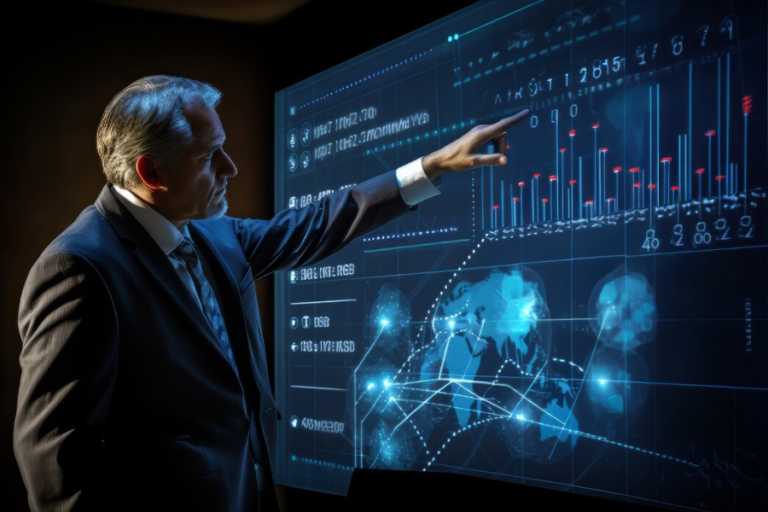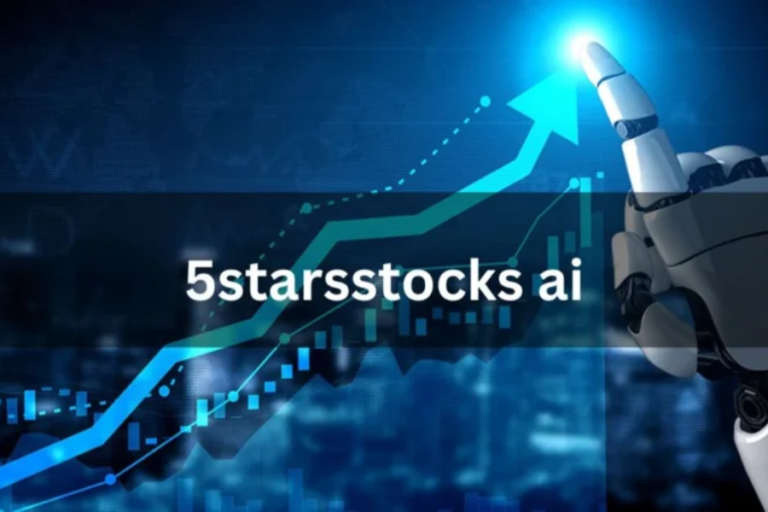Exploring the World of VHSGJQM: A Deep Dive into Its Impact and Relevance
The Development of Technology: Important Patterns Advancing Our Future
In today’s rapidly changing technological landscape, staying updated with the latest innovations can be both exhilarating and overwhelming. Vhsgjqm explores the most impactful technological developments that are reshaping industries, businesses, and our daily lives. From the rise of artificial intelligence to the growing importance of blockchain and the Internet of Things (IoT), these advancements are revolutionizing how we interact with the world around us. This article delves into these trends, their implications, and what they mean for the future.
Artificial Intelligence: Transforming Industries
The Role of AI in Today’s World
Artificial intelligence (AI) has moved beyond the realm of science fiction and is now a transformative force across multiple sectors. From enhancing customer service through chatbots to utilizing predictive analytics in marketing, AI is becoming indispensable for improving efficiency and decision-making processes.
Applications of AI
- Customer Service: AI-powered chatbots now offer 24/7 assistance, significantly improving customer satisfaction by providing instant responses.
- Healthcare: AI-driven algorithms assist in diagnosing diseases and predicting patient outcomes, helping medical professionals deliver more accurate treatments.
- Finance: AI is used for fraud detection and risk management, enabling financial institutions to make smarter, data-driven decisions.
The Future of AI
Looking ahead, AI will become even more integrated into everyday life. With advancements in natural language processing and machine learning, AI’s ability to enhance user experiences and automate complex tasks will continue to grow.
Blockchain Technology: Redefining Security and Transparency
Understanding Blockchain
Blockchain is a decentralized, secure system used to record transactions across multiple computers, ensuring transparency and security. It’s not just the backbone of cryptocurrencies like Bitcoin but is gaining traction in various other sectors for its robust features.
Key Applications of Blockchain
- Finance: Cryptocurrencies use blockchain technology to facilitate secure, transparent transactions.
- Supply Chain: Blockchain allows businesses to track products from origin to consumer, increasing transparency and reducing fraud.
- Healthcare: Patient records can be securely stored and shared across a blockchain network, ensuring privacy and data integrity.
The Future of Blockchain
As more industries recognize its potential, blockchain technology is expected to see greater adoption. Innovations and regulatory advancements will pave the way for more widespread use of blockchain systems.
The Internet of Things (IoT): Connecting Our World
What is IoT?
The term Internet of Things (IoT) describes a network of devices that are connected to one another and exchange data. This technology is transforming how we interact with our environment, from smart homes to wearable devices.
Key IoT Applications
- Smart Homes: Devices such as smart thermostats and security systems offer homeowners remote control over their living spaces.
- Wearable Technology: Fitness trackers and smartwatches monitor health metrics and provide valuable data to users.
- Industrial IoT: In manufacturing, IoT optimizes production processes and monitors equipment to prevent breakdowns.
The Future of IoT
With more devices expected to join the IoT ecosystem, this market is poised for exponential growth. As technology continues to evolve, smarter and more efficient devices will improve our quality of life in ways we are just beginning to explore.
Cybersecurity Trends: Protecting Our Digital World
Why Cybersecurity Matters
As technology advances, the risks associated with it also increase. Cybersecurity is critical for protecting sensitive information and maintaining the trust necessary for secure digital interactions.
Cybersecurity Trends
- AI in Cybersecurity: AI is becoming a powerful tool for detecting and responding to cyber threats in real time.
- Zero Trust Architecture: This security model assumes that threats can come from both inside and outside a network, requiring constant verification of users and devices.
- Data Privacy Regulations: With increasing concerns about data privacy, governments worldwide are implementing stricter regulations to safeguard consumer information.
The Future of Cybersecurity
As cyber threats become more sophisticated, businesses will need to adopt advanced security measures. Investing in robust cybersecurity systems will become increasingly important for protecting both corporate and consumer data.
The Shift Toward Sustainable Technology
Environmental Responsibility in Technology
Sustainability has become a key focus as companies and individuals are more aware of their environmental impact. Sustainable technology is gaining importance as businesses and consumers seek solutions that minimize harm to the planet.
Critical Areas of Sustainable Technology
- Renewable Energy: Solar and wind technologies are leading the charge in reducing carbon emissions.
- Sustainable Manufacturing: Companies are adopting eco-friendly production practices to minimize waste and energy consumption.
- Green Transportation: Electric vehicles and alternative fuels are helping reduce the carbon footprint of the transportation sector.
The Future of Sustainable Technology
As consumers demand more environmentally conscious products and services, businesses will continue to innovate in the space of sustainable technology. This shift not only helps the planet but also enhances brand loyalty and corporate reputation.
Remote Work Technology: Changing How We Work
The Rise of Remote Work
The COVID-19 pandemic accelerated the widespread adoption of remote work technologies, fundamentally altering how we collaborate and communicate in the workplace.
Technologies Enabling Remote Work
- Collaboration Tools: Platforms like Zoom, Slack, and Microsoft Teams have become essential for remote communication and teamwork.
- Project Management Software: Tools like Asana and Trello help teams track tasks and manage projects efficiently from anywhere.
- Cybersecurity for Remote Work: As more teams work remotely, businesses must implement strong security measures to protect sensitive information.
The Future of Remote Work
As remote work becomes a permanent part of the work landscape, we can expect further advancements in collaboration tools and virtual reality technology to facilitate even more immersive and effective remote interactions.
Summary
VHSGJQM explores the latest technological trends reshaping industries and everyday life. From artificial intelligence (AI) revolutionizing sectors like healthcare and finance, to blockchain offering enhanced security and transparency, to the Internet of Things (IoT) connecting devices and optimizing processes, these Innovations are opening the door to a more intelligent future. Additionally, cybersecurity is becoming crucial in protecting our digital spaces, while sustainable technology focuses on minimizing environmental impact. The rise of remote work has also been accelerated by technological innovations, making collaboration and productivity easier than ever before. Staying informed about these trends is essential for both businesses and individuals as they navigate the future of technology.
FAQs
- What does VHSGJQM focus on?
- VHSGJQM explores key technological trends such as AI, blockchain, IoT, cybersecurity, and sustainable technology that are transforming industries and everyday life.
- How is AI changing industries?
- AI is enhancing customer service, improving healthcare diagnoses, and optimizing financial decision-making through predictive analytics and automation.
- What are some key applications of blockchain?
- Blockchain is being used in finance for cryptocurrencies, in supply chains for transparency, and in healthcare for secure patient records.
- How does IoT impact our daily lives?
- IoT connects devices such as smart home systems, wearables, and industrial sensors, making our lives more convenient, efficient, and interconnected.
- Why is cybersecurity important in the digital age?
- With the rise of digital interactions, cybersecurity protects sensitive information, ensuring privacy and safeguarding systems from increasingly sophisticated cyber threats.
Facts
- AI in Healthcare: AI algorithms assist in diagnosing diseases and predicting patient outcomes, enhancing the accuracy of treatments.
- Blockchain Transparency: Blockchain ensures transparent and secure transactions, making it ideal for use in cryptocurrencies and supply chains.
- IoT Growth: IoT is expected to see exponential growth as more devices become interconnected, transforming industries like manufacturing and healthcare.
- Sustainable Technology: Solar and wind energy are leading sustainable technologies, helping reduce global carbon emissions.
- Remote Work Tech: The adoption of remote work tools like Zoom, Slack, and Microsoft Teams has revolutionized how teams collaborate globally.
Discover Toronto’s vibrant news scene and updates right here at Torontoheading.com.





